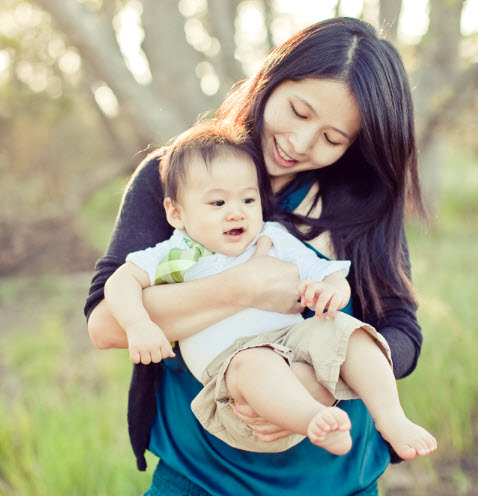Babies go through an astounding amount of changes during their first year of life. From learning to crawl to hearing your baby’s first words, these developmental milestones can help parents and pediatricians track your child’s physical and behavioral growth.
Well check appointments provide an opportunity for your pediatrician to monitor and chart these developmental milestones and see how much your child has progressed since your last visit.
In the first 12 months, here are some general milestones we look for:
- Between months 1-2, most babies will start to become more aware of their surroundings. They will recognize familiar faces or voices, and begin to follow moving objects with their eyes. At this stage, babies will also gain strength in their neck to hold their head up during tummy time and keep their hands in tight fists.
- At 4-5 months, babies’ motor skills begin to develop and they will start to grab for things and begin rolling over. At this stage, it’s important to remember not to leave them unattended even for one second, as accidents can easily occur. Babies will also start to giggle, smile and laugh at this playful stage.
- The 6-month milestones include sitting up with support or on their own. This is also a time where babies begin to explore objects by putting everything in their mouths, so keep small objects out of reach!
- When they reach 9 months, most babies have begun to crawl and are constantly on the go. They may have started to pull themselves up to a standing position and can also clap, wave and use a pincer grasp, with the thumb and first finger, to pick up small objects. Babies also show a lot of growth in their language development during this stage and start to respond to their name and imitate speech sounds they hear others make.
- At 12 months, babies may start walking independently, but earlier or later than this is completely normal. They also may begin to say “mama,” “dada,” and other recognizable phrases like “uh-oh!” Interactive games, such a pat-a-cake and peek-a-boo are a favorite at this age.
It’s important to remember that these milestones are approximate guidelines and that every child develops at their own pace. While babies tend to follow the same development pattern, no two babies go through these milestones at the exact same time.
I always remind parents that it’s not about focusing on the completion of the milestone, but the progress their child is making. It is completely normal for babies to spend different amounts of time at each stage before moving on to the next.
Slow down and enjoy each moment with your growing baby because the first year will go so quickly!
If you are concerned that your child isn’t advancing or making progress toward a new skill, your pediatrician is your best resource. You can schedule an appointment to discuss questions or concerns that may come up in-between well checks.



